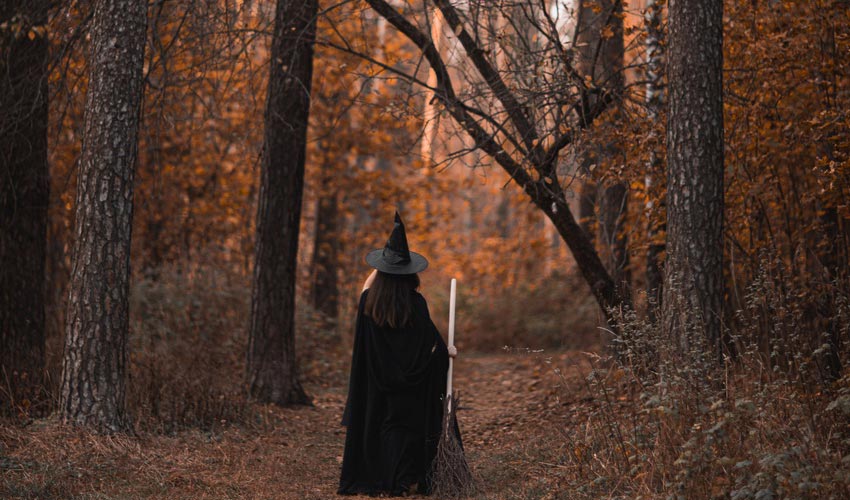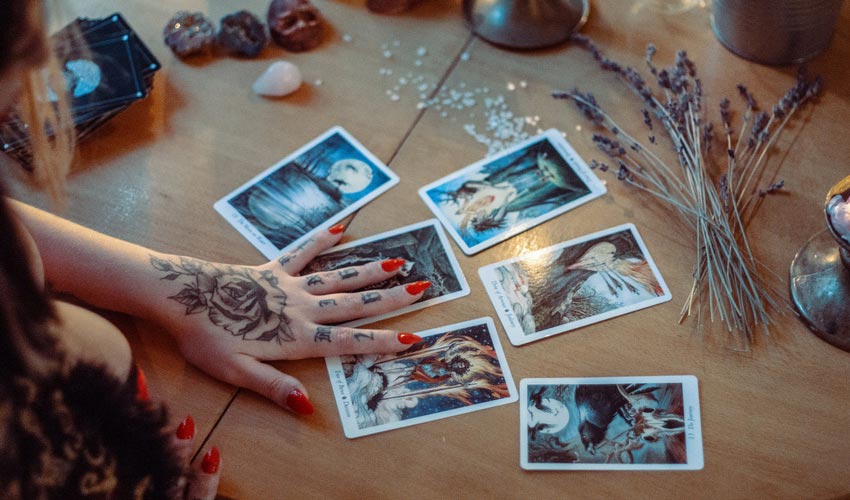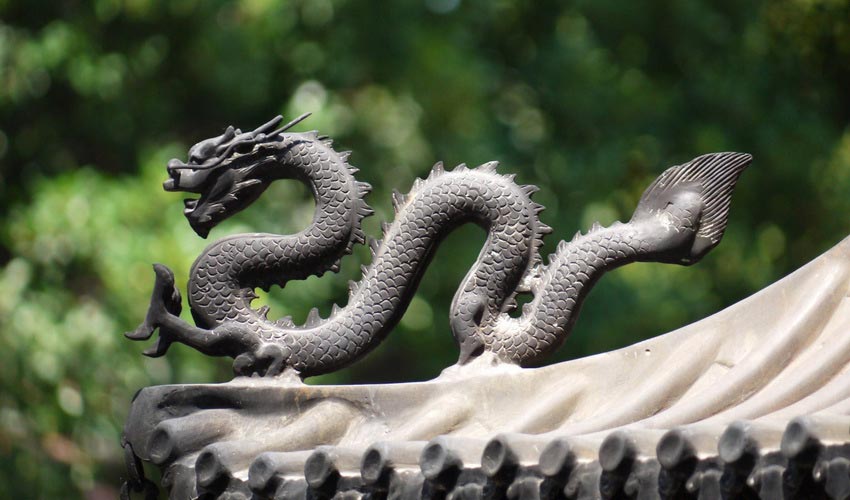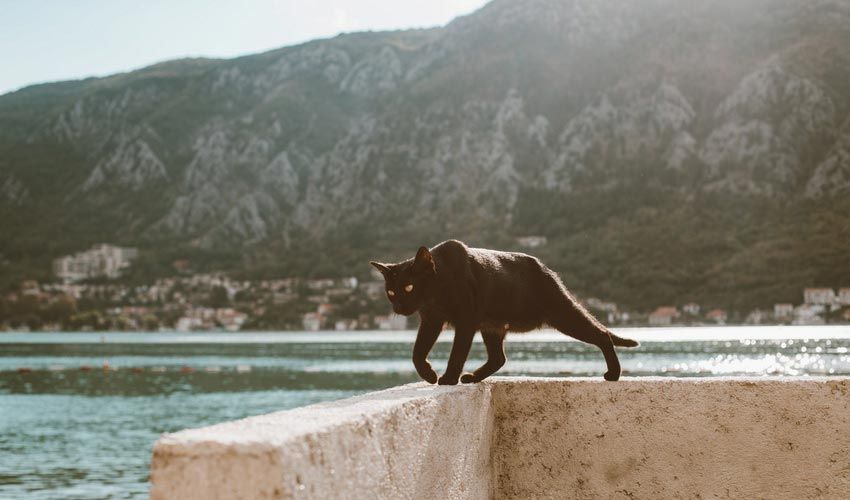Superstition throughout History
I like to describe it as the delightful quirk that has haunted humanity since ancient times. Superstition, it seems we just can't resist its whimsical allure. From the Egyptians to the Greeks and Romans, superstition has wormed its way into the hearts and minds of people across the globe. You have to hand it to those ancient civilisations as they really knew how to spice up their lives with a touch of the supernatural. Let's start with the Egyptians, those fine connoisseurs of afterlife adventures. They believed in an entire pantheon of gods and goddesses, who were apparently responsible for everything from the beginning to the end. Birth, death, fertility, you name it. The gods had a finger in every pie. They even mummified their dead with shiny baubles and amulets, because, you know, who wouldn't want to be stylishly protected from evil spirits in the afterlife? And just in case you thought that was enough, the Egyptians also thought the sun held the power to heal. Yes, folks, they used sun rays to cure diseases. Talk about a solar-powered healthcare system.
Moving on to the Greeks and the Romans, the masters of omens and portents. These fine folks had a penchant for consulting oracles to peer into the future. Because, let's face it, who needs crystal balls or tarot cards when you can have an ancient priestess muttering cryptic prophecies? Besides, clearly seeing into the future is overrated. They also loved their talismans and amulets, as if a little bit of symbolically charged metal could keep evil spirits at bay. Hey, you never know, right? Then we have the Middle Ages, a time when superstition was all the rage in Europe. The Catholic Church really knew how to take this whole superstition thing to another level. They taught that demons and evil spirits needed vanquishing, and folks believed that relics and holy water were the magical weapons to get the job done. Of course, let's not forget about the centuries-long persecution of women accused of being witches. I mean, who can resist a good witch hunt? It's like hide-and-seek, but with torches and pitchforks.

And don't even get me started on the suppositions surrounding death and the afterlife. People believed that the dearly departed could have a good old chat with the living, so they treated them with the utmost respect and reverence. No surprise there, who wouldn't want some friendly ghostly roommate? It must have made for some interesting conversations around the dining table, that's for sure. So, as we delve into the depths of history, we find that superstition has woven its intricate threads throughout the fabric of human existence. From ancient Egyptians bedazzling their mummies, to Greeks and Romans consulting oracles while clutching their trusty amulets, to the Middle Ages' obsession with relics and witch hunts, superstition has kept humanity entertained for centuries. So next time you find yourself knocking on wood or avoiding black cats, just remember you're in good company. After all, we're all a little superstitious, aren't we?
Witchcraft & The Age of Enlightenment
Witchcraft is a mélange of spiritual practices and beliefs that makes even the most organised religion look about as complex as a paint-by-numbers set. It involves the use of magical or supernatural powers to shake things up in the world. Not like a blender, mind you, but more like a metaphorical shake that makes things happen. Historically, people have associated witchcraft with tossing spells, chanting incantations, and brewing up potions like a mad scientist in a cauldron.
In certain cultures, witchcraft has been seen as a form of folk magic, like Grandma's secret cure for the hiccups or Uncle Joe's lucky charm for catching fish. It’s been used to heal the sick, protect crops, and even bring good fortune to the most superstitious of souls. On the other hand, there are those cultures that portray witchcraft as a grotesque dance with Satan and his posse of evil spirits. These folks do not mess around. They see witchcraft as a practice that requires a hazmat suit and a crucifix at all times. But let’s fast forward to the present, shall we? In this age of Pinterest and pet memes, witchcraft has evolved into a modern mix of old traditions and new ideas. It’s like the spice rack of spirituality, with everything from Wicca (the hipster version of witchcraft) to neo-paganism and good old-fashioned folk magic. Modern witches, or witchettes if you prefer, are all about personal growth, self-awareness, and saving the planet from ecological disaster. They’re like the Greenpeace of the spirit world.
Witchcraft these days is all about empowerment, healing, and connecting with nature and the divine. It’s like Tony Robbins meets Mother Nature. But beware, my friends, not everyone is on board with this funky witchy vibe. There are still pockets of humanity where witchcraft is seen as evil and anyone practicing it is banished to the depths of a poorly lit dungeon. Some communities just can’t shake off the old superstitions and have yet to upgrade their knowledge like the rest of us. For instance, during the Age of Enlightenment, when people discovered that science and reason were cooler than a cucumber, some folks were still clenching onto their garlic cloves and crucifixes. They genuinely believed in vampires. I’m talking about creatures of the night sucking the life out of people and livestock like a juice box at recess. To fend off these blood-sucking fiends, people would put up garlic and crosses in their homes.

Superstitions still run rampant in our world, albeit in a more subtle manner. People still put faith in rabbit's feet, four-leaf clovers, and horseshoes to bring them luck, even though the last time those lucky charms were effective was probably when dinosaurs roamed the earth. Astrology is another one of those obsessions that some people have. They actually believe the position of stars and planets at the time of their birth can dictate their entire lives. As if the universe is playing a game of celestial chess with their destiny. Hold on, there's more! Many superstitions have become ingrained in popular culture, seeping into our brains through movies and old wives' tales. Walking under a ladder is a big no-no, breaking a mirror is like a guarantee of bad luck for seven years, and opening an umbrella inside is just asking the universe to rain down misfortunes upon you. And oh, black cats, they're like a feline Rorschach test. Some people see them as sneaky symbols of witchcraft and bad luck, while others see them as fluffy little guardians of prosperity and protection.
So there you have it, a humorous exploration of witchcraft, superstition, and their place in our modern, enlightened society. Remember, embrace the magic, but be careful not to break too many mirrors, stumble upon any ladders, or find yourself face-to-face with a coven of witches. Stay witty, and stay witchy!
Superstitious Beliefs & Food
In the vast realm of superstitions, where reason clings to the edges of sanity like an overripe banana, certain foods have managed to secure a well-earned place as igniters of mystical beliefs. These culinary specimens, whether through their shape, texture, or downright quirkiness, have managed to bewitch the imagination of humankind. So without further ado, grab your fork of curiosity and let's dig into some of history’s most tantalisingly superstitious foods!
Garlic… The unsung hero in the battle against evil spirits! Across numerous cultures, this pungent little bulb has been revered as a powerful talisman, capable of warding off those malicious entities that haunt our nightmares. Not only that, but it boasts seemingly magical healing properties, much like a wizard's potion, making it a kitchen superhero of sorts. Forget your stereotypical garlic bread or that overhyped aioli; we're talking about garlic's ancient role in the supernatural! It's like garlic donned a tiny cape and transformed into a placard-holding crusader against all things spooky. Imagine a little garlic bulb with miniature fangs, ready to save the day! Well, perhaps that's taking the fantasy a tad too far, but you get the gist. Throughout history, garlic has been thought to possess the uncanny ability to ward off those witches who, instead of brewing a delightful cup of tea, have their eyes set on causing chaos and mischief. Picture these wicked sorceresses recoiling in horror at the mere sight of a clove, their magical brooms dropping from beneath them as they hastily retreat. Garlic: The arch-nemesis of the cauldron-wielding villains!
And as if that wasn't enough, our humble garlic also battens down the hatches to protect us from the dawn-dodging creatures of the night – vampires! These bloodthirsty beings supposedly tremble and recoil before the almighty aroma of garlic. Imagine Dracula, with his stylish cape and elegant charm, forced to flee from a kitchen marinated with the stench of garlic cloves. It's enough to make him wish he could transform into a bat and fly far, far away. Or maybe just grab a mint. But garlic's talents don't end there! Oh no! It turns out garlic is rumoured to possess remarkable healing powers. Like a wise old shaman in bulb form, garlic has been said to cure ailments, chase away infections, and restore vitality to the weary. Who needs to swallow a handful of questionable potions when you could simply munch on a clove of garlic, tossing those worries aside like yesterday's leftovers?
So, whether you believe in the mystical powers of garlic or view it as an aromatic ingredient meant for flavouring delightful dishes, there's no denying its captivating lore! Garlic is like the enigmatic warrior against evil spirits, the bouncer at the door of supernatural mischief. It is part ingredient, part superhero, part ancient legend - all wrapped up in one odorous package. Remember, folks, the next time you slice into a clove of garlic, you're not just cooking a meal; you're unleashing a mystical force against the things that go bump in the night. Stay vigilant, and keep that garlic close at hand!

Salt… The mystical art of spilling salt! Who would have thought that such a simple act could unleash a wave of misfortune upon our delicate souls? But fear not, fellow believers in the curious customs of various cultures, for I bring you the sacred antidote to this dire situation. A pinch of salt flung over the left shoulder with the grace of a seasoned pepper grinder! You see, spilling salt is not just some trivial accident; it is a cosmic trigger for chaos, a direct hotline to the forces that govern our lives. Now, one might assume that such a potent demonstration of misfortune could only be remedied by an equal, if not greater, endeavour. Yet, oh weary traveller on the path of superstition, fret not about Hercules-like feats, for salvation lies within your reach (and kitchen cupboard)! This ancestral wisdom dictates that the cursed salt must be swiftly counteracted by a crafty manoeuvre. A pinch, no more than a sprinkle, shall be procured and readied for the cleansing ritual. But wait! It is not as simple as flicking the salt across the room or tossing it carelessly towards the heavens. No, no, that would be far too pedestrian.
The somersault of luck reversal calls for precision, finesse, and the mastery of a master chef garnishing their pièce de résistance. With a subtle flick of the wrist, the pinch of salt emerges from your fingertips, soaring beautifully through the azure sky (or at least in the general direction of your left shoulder). Time suspends, hearts skip a beat, and then... Eureka! The salt lands exactly where it is meant to be, a dazzling display of supernatural skill that befits an illusionist of the highest order. But why, you ask, does the left shoulder play such a pivotal role in this enchanting dance of fate? Well, the answer is as thrilling as it is perplexing. The left side, you see, has long been associated with sinister forces and damnation. By directing this tiny white warrior towards the left, we not only defy the laws of gravity but also symbolically repel the ill fortune back from whence it came.
So remember, the next time you summon disaster upon your tablecloth, reach for your trusty salt shaker. Show the world that you refuse to be a mere puppet in the grand theatre of luck. Embrace the power of a single pinch, the grace of a well-timed flick, and the ability to rewrite your own destiny, one salty rebellion at a time.
Eggs… The humble egg, a remarkable little culinary wonder that manages to simultaneously delight and confound cultures around the world. It's a truly egg-cellent topic to explore! Throughout the annals of history, eggs have been revered and symbolised as the very embodiment of fertility and birth, becoming an integral part of diverse cultural beliefs. Let us embark on a yolky journey through the enigmatic world of egg symbolism. In the realm of luck, we encounter cultures where eggs reign as the ultimate charm for fortuitous endeavours. These societies hold the belief that possessing a clutch of eggs will open the gateway to prosperity and success. Yep, the almighty egg, shrouded in its golden-tinged aura of luck! It's like having your very own tiny jackpot, ready to crack open and spill its riches upon you. But beware, for not all cultures are enamoured by the luck-bringing properties of eggs. In some corners of this peculiar world, eggs are seen as harbingers of doom, carriers of misfortune eagerly waiting to unleash their wicked spell upon unwitting victims. In these unfortunate realms, breaking an egg is the equivalent of summoning a pack of black cats and shattering a mirror inside a salt factory. The ramifications of such a grave action are believed to bring anything but sheer delight, resulting in a symphony of bad luck in one's life.
Now, why would something as innocent as an egg wield such terrifying powers? This is a question as perplexing as trying to determine which came first, the chicken or the egg. We may never truly crack the shell of that philosophical mystery. Yet, these contrasting beliefs demonstrate the captivating diversity of human culture and its unrelenting ability to concoct fascinating superstitions around the simplest of objects. It's almost as if the egg, with its oval shape and delicate shell, symbolises the fragility of life itself. It stands as a tangible testament to the precarious balance between fortune and misfortune, a tantalising embodiment of the dichotomy inherent in the human experience. Eggs have managed to hatch their way into our collective consciousness, becoming stealthy messengers of cultural beliefs and symbolic meaning. So, the next time you stumble upon a beautifully decorated egg or find yourself pondering the enigma of life, spare a moment to appreciate the vast tapestry of human interpretation woven throughout the millennia. And if fortune smiles upon you, may the eggs in your basket crack open to reveal golden opportunities, while the spectre of misfortune remains safely locked inside, away from your sunny side up morning omelette Bon appétit!

Fish… The sleek and slippery creatures of the deep. Who would have thought that these scaly wonders would become lucky symbols in various cultures? It's quite the fishy business, my friends, but let me enlighten you about the captivating world of finned fortune. Let's cast our nets and set sail for the vast land of China. In this ancient land, fish gracefully swim their way into the hearts and minds of its people. Now, brace yourselves, because these magical fishies symbolise something we all desire – wealth and prosperity. Yes, you heard me right! These aquatic beings are the embodiment of financial abundance! You see, the Chinese have an eye for the symbolic, and they believe that the Chinese word for fish, "yu," sounds similar to "surplus" or "abundance." Yeah, the power of language! It's as if the clever Chinese were playing linguistic tricks within the very depths of their culture. So, in their quest for fortune, the folks in China hang fish decorations in their homes, hoping for an overflowing bounty of prosperity to swim their way. But wait, there's more! Fish in Chinese culture are often served whole during celebratory feasts. Why, you may ask? Well, let me tell you a tale. Picture this: a table adorned with fragrant dishes, joyful laughter, and a whole fish poised at the centre, its glittering eyes reflecting the dreamy aspirations of those gathered around. As the meal progresses, the fish is savoured from head to tail, symbolising the consumption of good fortune and the hope for a wealth-filled future. It's like eating a prophecy, a delicious divination!
And that's not all this piscine parade has to offer. For the Chinese New Year, a grand extravaganza of celebration, fish play a starring role. Lucky families will adorn their homes with paper cut-outs of fish, praying for a journey of prosperity to gracefully glide through their lives. These vibrant decorations dance like shimmering scales, enticing good fortune to take centre stage in the year ahead.
But let's not leave our fishy friends stranded in China alone. They've managed to conquer other corners of the globe as well. Take Japan, for example. In this land of cherry blossoms and Zen philosophy, the humble koi fish takes the spotlight. With the persistence of a salmon swimming upstream, the koi symbolises determination and strength. These plucky fish are known for their ability to fight against the current, an inspirational message for those facing adversity in their lives. So, when you find yourself chin-deep in challenges, remember the koi fish and let its resilient spirit guide you through the tempestuous waters of life. Oh, the wonders of the fish! It swims through cultures, carves a place for itself in the hearts of people, and symbolises the soaring desires for wealth and prosperity. So, whether you prefer to devour them symbolically or let their tenacity inspire you, the fish will forever remain a lucky charm, reminding us that even in the vast ocean of life, a little fortune can make a mighty big splash.
Banana… Also on our menu of mystique is the humble banana. Yes, you heard it right, that curvy yellow fellow that often graces our breakfast tables. However, be warned, for this curved wonder is no ordinary fruit. Legend has it that if you dare peel a banana at night, darkness will leak forth from its pale flesh, and you shall be cursed with a never-ending stream of nightmares. So, heed the advice of the wise old bananas and keep those peels intact until the sun's warm embrace.
Tomato… The tomato. Yes, it may just be a juicy vegetable (or is it a fruit? The eternal debate rages on), but centuries ago, this plump garnet beauty sent shivers down the spines of those who dared gaze upon it. In medieval Europe, the tomato was deemed suspiciously crimson, arousing fears that its alluring hue hinted at devilish intent. And while we chuckle at such antiquated notions, let us not forget that even the most innocent of vegetables can carry the weight of a thousand superstitious minds.
Apples… Those wondrous orbs of temptation and delight, forever entwined with tales of love, fertility, and prosperity. Throughout history, these delectable fruits have etched their place in the very fabric of human existence, captivating our taste buds and sprinkling a hint of mystery upon our lives. But did you know that in certain cultures, partaking in the sacred act of apple consumption on the eve of Halloween is believed to bestow upon oneself a cascade of good fortune? Picture this: a crisp autumn night, the moon casting shadows upon the earth, and you, standing amidst a sea of pumpkins and ghoulish costumes, armed with nothing but an apple. As you sink your teeth into its luscious flesh, you can almost feel the currents of luck swirling around you, ready to shower their benevolence upon... well, upon you, of course! Why? You might ask. Well, the answer lies in the ancient lore that has been passed down from generation to generation, whispered in hushed tones around bonfires and haunted houses. It is said that the act of consuming an apple on All Hallows' Eve taps into the mystical energies that permeate the cosmos during this magical time of year. Legend has it that by indulging in this fruity ritual, one can awaken the dormant powers within, attracting love, fertility, and prosperity like bees to honey. As you crunch into the flesh of the apple, your fate intertwines with these supernatural forces, as if Cupid himself were aiming his bow straight at your heart. It's almost as if every bite holds a promise, a whispered secret that good fortune is just around the corner.

Couples hoping to kindle the flames of passion sprinkle a sprinkle of cinnamon onto their apple before devouring it. They believe that the warmth and spice of this sweet seasoning will ignite a fire within their hearts, allowing love to blossom and flourish. It's a culinary concoction fit for the gods, a tantalising treat that entwines both desire and destiny in one scrumptious bite. But, let's not forget the fertility aspect of this Halloween tradition. It's said that biting into an apple on this bewitching night not only ensures a fruitful harvest but also grants the gift of fertility to couples desiring to expand their families. Oh, the apple, the literal and metaphorical seed of life bringing forth the joys of growth, renewal, and the pitter-patter of little feet. Last but certainly not least, we come to prosperity, the shimmering jewel in the crown of this auspicious apple ritual. As the succulent juices trickle down your chin, the universe takes note, for it is a time when the alignment of energies is most receptive to fortune and abundance. By partaking in this Halloween tradition, one allows the blessings of prosperity to rain upon their lives, turning the mundane into the extraordinary. So, as another Halloween approaches, why not embrace the whimsy and charm of this strange yet delightful custom? Bite into an apple, savour its tantalising taste, and let the currents of love, fertility, and prosperity whisk you away into a magic-filled world. For within the humble apple lies the power to transform mere mortals into souls touched by enchantment, ready to dance beneath the moonlight and bask in the glow of endless possibilities.
Rice… The humble grain that has managed to find its way into the hearts (and stomachs) of countless cultures. But did you know that rice isn't just a staple food? Oh no, it's so much more than that! Get ready for a journey into the fascinating world of rice; a world where prosperity and fertility go hand in hand. Let's start our adventure in the land of the rising sun, Japan. Now, it's no secret that the Japanese have a knack for turning everything into an art form, and rice is no exception. In this magical land, it is customary to throw rice at weddings – yes, throw it! But before you start thinking, "What a waste of perfectly good carbs!" There's a method to this rice-flinging madness. You see, throwing rice at weddings in Japan isn't just some frivolous act. It's a tradition rooted in the belief that rice represents wealth and abundance. By showering the newlyweds with rice, the guests are essentially saying, "May your pantry be forever stocked, your wallets always full, and your offspring plentiful!" Who knew that a handful of rice could carry so much meaning? And speaking of fertility, let's take a quick detour to ancient China, where rice also holds a prominent position. Nestled among the mythology and folklore of this captivating country is the tale of the Dragon's Pearl. Legend has it that a heavenly dragon, desperate to appease the gods and bring rain for his drought-stricken people, swallowed a magical pearl and dove into the sea. When he emerged, the dragon spat out the pearl, and it transformed into a rice paddy.
From that day forward, rice became synonymous with the life-giving power of the dragon – a symbol of fertility and abundance. Chinese farmers even used to perform rituals imitating the appearance of a dragon in their rice fields to ensure a fruitful harvest. Now, that's taking agricultural superstition to a whole new level! But wait, our journey into the world of rice symbolism doesn't stop there. Let's hop over to Thailand, where they not only eat rice but also fashion it into stunning art pieces. In Thai culture, rice plays an essential role in religious ceremonies and rituals, particularly during the Lunar New Year, known as Songkran. During this vibrant festival, the Thais craft intricate sculptures from colourful, dyed rice. These stunning artworks are believed to bring luck, blessings, and good fortune to both the creators and spectators. It's like sprinkling a pinch of magic and creativity onto an already marvellous grain. So, there you have it – a whirlwind tour of how rice became a symbol of wealth and fertility in various cultures. It's amazing how this simple grain, once overlooked as mere sustenance, has taken on new meanings throughout history. From Japan's rice-throwing extravaganza to China's dragon-inspired myth, and Thailand's rice art, rice has managed to sprinkle its significance in our celebrations, beliefs, and aspirations.

My Final Thoughts
Superstition is the mystical potion of human society, brewed for thousands of years and still served today with an enticing dollop of belief and a pinch of irrationality. In this Age of Enlightenment, where science strides boldly forward, some might think that superstition would wither and shrink away like a cowardly vampire facing the dawn. Alas! It persists, my dear fellow humans, particularly in the realm of luck and fortune, where reason finds itself ensnared in the web of peculiar beliefs. Yes, even as we marvel at the wonders of modern technology and unravel the mysteries of the cosmos, we find ourselves entangled in this whimsical dance with superstition. Ancient civilisations may have worshipped sacred cows, sacrificed goats, and sought divination from the flight of birds. And although we've waved farewell to such practices, superstition has simply donned a new disguise, adorning itself with the tantalizing raiments of lucky charms, four-leaf clovers, and horseshoes. But let us not be too quick to scoff or dismiss these lingering remnants of the human past. For in the tapestry of human experience, superstition weaves a pattern of belief that shapes our very understanding of the world. Whether we are steadfast believers in the mystical forces of good fortune or resolute sceptics who trust only in the power of human resilience, we cannot deny the influence of superstitions. They colour our perception, tweak our decisions, and sprinkle a dash of uncertainty amidst the mundane tapestry of life.
Imagine, if you will, a person walking down a path, their heart leaping with trepidation as they spy a ladder propped squarely against a wall. It matters not that the rationale mind cringes in the face of such absurdity – their steps become tentative, their heart aflutter with apprehension, for lady luck must surely be angered by such a haphazard arrangement of metal. What tumultuous emotions such a ladder can provoke, all thanks to the age-old superstition nesting comfortably in the depths of their subconscious! And what of those fabled superstitions surrounding Friday the 13th, that nefarious day where misfortune supposedly gathers in abundance like anxious seagulls at a seaside picnic? The sceptics may scoff at the irrationality of it all, but watch as they unwittingly lower their voices to a hushed whisper on that treacherous date, and they cross their fingers with nervous anticipation. What unseen forces lay claim to their rational minds, urging caution and vigilance with every tick of the clock?
One must wonder whether these superstitions are mere figments of our collective imagination or delicate reminders of our humble humanity. In a world teeming with uncertainties, where chaos and order dance a perpetual waltz, perhaps we find solace in the arms of superstitions. They offer us some semblance of control, a slender thread of hope to cling to in a tumultuous sea of chance. So, on this bizarre journey called life, whether you choose to revel in the realm of superstition or remain firmly grounded in the realm of logic, let us not forget the power these beliefs hold over us. They may seem trivial or nonsensical at times, but they still tickle our minds, influence our actions, and inject an extra dose of wondrous mystery into an otherwise predictable world. Stand by for my next article: Superstitious Beliefs – Animals & Plants!
“There are some things, after all, that Sally Owens knows for certain: Always throw spilled salt over your left shoulder. Keep rosemary by your garden gate. Add pepper to your mashed potatoes. Plant roses and lavender, for luck. Fall in love whenever you can.” - Alice Hoffman, Practical Magic






















